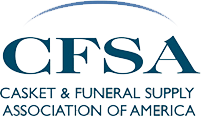An excerpt from Funeral Service Insider (www.funeralserviceinsider.com).
If we remember anything about 2016, it might be as the year prognosticators got wrong.
Britain was not supposed to exit the European Union, but when all the votes were tallied after a June 23 referendum, we found out otherwise… Here in the United States, Hillary Clinton was supposed to become the first female president of the United States. If Donald Trump somehow won the election, the stock market was supposed to crash. We all know how that turned out.
The funeral professionals we polled last year, however, had somewhat better luck than the professional pundits in making predictions for 2016. No one, perhaps, was more prophetic than Dan Isard, founder and president of The Foresight Companies, who told us that the presidential election would have far-reaching ramifications for funeral service. With the very real prospect of Trump quashing the Affordable Care Act and with most observers agreeing that overtime revisions that were put on hold will probably never go through while he’s in office, Isard may start calling himself Nostradamus.
What do Isard and others predict this time around? Read on to read their bold predictions …
It’s simple math, Isard says. “Mortality is rising above 8.2 deaths per thousand and our population is increasing,” he explains.
Up to a fifth of funeral homes will hit a ceiling on average revenue per call.
“This topping off is due to the rise in cremation and the inability of funeral managers to set their prices on cremation and partial services,” Isard says.
Big players will get bigger.
“I believe we are going to see the growth of national/international acquisition and operation companies in quantity and in the number of assets they supervise,” Isard says. “The average age of funeral home owners is mid-60s. With the exception of those that borrowed money from their mother-in-laws, many are going to retire … Therefore, regional acquirers will increase as will national acquirers.”
Cremation will go up but not for the reasons most funeral professionals think.
“It will increase because in larger cities people are not seeing value in a two- or three-day coming together,” Isard says. “It is also subject to an increasing ‘none’ population. Religions have grown as a way to make your way into heaven. As more and more people do not believe in a heaven, there is no reason to practice a religion. So, with 23 to 30 percent of our national population being a ‘none,’ the burial rights are going to decline. Even the religions are writing new rules for cremation. It won’t be too long now until we have the first pope cremated, the way I look at it.”
Robert Fells, executive director and general counsel of the International Cemetery, Cremation and Funeral Association (ICCFA), says he’s genuinely excited about the next 12 months. “I think we have reached critical mass in terms of industry changes, and we will be seeing the results much more clearly now,” he says.
But that, he says, is “good and bad news.” He adds, “Here’s how I see it: The good news is that some of your competitors will be going out of business or at least consolidating. The bad news is make sure you’re not among them.”
The reason most once-successful businesses close – including funeral homes – is that the owners refuse to change their business models, Fells says. That’s because the models worked a long time ago – “not because they don’t know how to run their businesses,” Fells says.
“Funeral homes and cemeteries once ‘owned’ casketed services,” Fells says. “What else were families going to do with it? Today, the family ‘owns’ the urn, and they can take that any- where. If your business planning doesn’t account for this shift, you are causing your own obsolescence.”
While no one can reinvent the wheel, Fells predicts that the firms that do not attend trade association meetings to seek help from entrepreneurial companies and individuals offering solutions to stay relevant will most likely be the firms that go extinct. “Saving some bucks by skipping your association’s convention or conference is skipping over dollars to save pennies,” he says.
Danielle Thacker, vice president of Thacker Caskets and the author of a popular blog at
www.FuneralGal.com, thinks funeral homes will continue to offer families more options, including services at nontraditional hours and a growing willingness to plan and host services at nontraditional locations – but they’ll keep a careful watch on the bottom line. She predicts:
Funeral homes will abandon relationships with vendors.
They will re-evaluate the relationships they have with vendors to make sure that they are as profitable as they can be, she says. “Funeral homes are tossing out the door the notion of simply doing business with a vendor because they have done business with them for 10-, 20- or 30-plus years,” she says. “Funeral home owners have a decision to make: Who are they going to be more loyal to – their vendor’s bottom line, or their own?”
Creativity will become the norm.
“The successful funeral homes will be the ones that establish an ongoing relationship with their community,” Thacker says. “Funeral homes that are creative in their community outreach, their services and more will be the ones that are the leaders in their given market. The internet, Pinterest and social media are endless feeds of creativity to be able to create personalized ‘classy casual’ events that families are truly looking for. Successful funeral homes will seek out these sources for ways to create a funeral experience for today’s families.”

